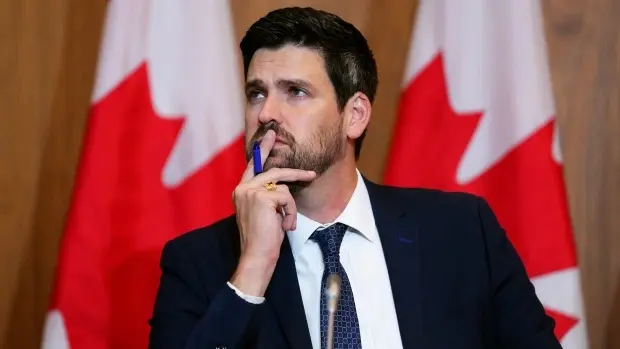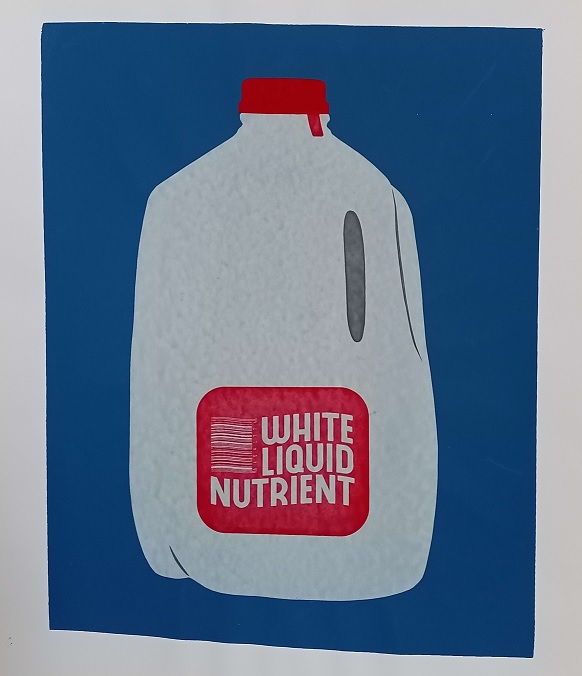In a country with some of the world’s most expensive real estate, Prime Minister Justin Trudeau’s government wants housing to become more affordable.

Whenever they say “I don’t want to drive down prices” that demonstrates a fundamental unseriousness about the crisis.

I think you’re assuming waaay too much about the seriousness of this statement. It’s a politician assuring the losers of a policy they won’t lose by rewording the policy a different way.

It seems to me that increasing supply alone is not going to cut it. Are there not a bunch of financial groups with nearly bottomless wallets that enable them to afford to buy up any amount of property to rent or flip at any price they want, even if it means some properties sit on the market empty for a long time? This government policy seems analogous to having people with $100 dollars sitting at a no-limit poker table with a bunch of billionaires who can afford to endlessly put you all in on every bet, so they always bet more than you have and then the government comes in and says they will allow for more games to be played. Wouldn’t the policy be pointless if you don’t also limit the number of games the wealthy players can play?

Supply and demand control prices. Period. Adding supply will only fail to control prices if demand keeps rising. And if buyer demand keeps rising to keep up with prices? It would suck, but there’s actually a silver lining to that: Rent goes down then.
Remember, now that we’re punishing vacant units, every investment unit must be rented out. So as the investors make a mad dash to build and buy our endlessly-rising housing units, more and more inventory gets dumped onto the rental market.
Now, there’s obvious downsides to this story, I’m not going to pretend the “own nothing and be happy” end is ideal. But it’s better than the “own nothing and live in a fucking tent” ending.
- EhForumUser ( @EhForumUser@lemmy.ca ) 1•2 years ago
It seems to me that increasing supply alone is not going to cut it.
Well obviously you also need to increase demand. Without that, most Canadians will remain out of the market. The hope is that more home options will encourage increased demand.

Canada wants to eat it’s cake while also having it. Something like 60% of Canadians own their home or live in a home their parents own. 40% of a country is more than sufficient to tear the country apart if they lose faith in the society they live in. Allowing housing to become investments has been a mistake that needs to be corrected for the long term stability of the nation.

If government had the power to just snap their fingers and halve the price of all real estate, regular home owners should not be negatively affected.
It’s mostly only the people who own multiple homes as investments, developers, and people who rent out their properties.
If you own a home that you live in, yes it will suck that prices dropped after you signed your mortgage, but you already agreed to pay that before so you should be able to afford those payments wether your house is $1M or $500K.
If you need to move, the house that you need to move to will now be half price so you didn’t lose anything with your own house going half price. If anything you win by not having to pay as much taxes.

If you need to move, the house that you need to move to will now be half price so you didn’t lose anything with your own house going half price. If anything you win by not having to pay as much taxes.
This part is incorrect. If you buy a $1MM home with a $200K down payment, then you have a $800K debt. If you sell at $500K, then you still owe $300K and will declare bankruptcy and need to start saving for 7 years (?) for that bankruptcy to fall off your credit history to be able to get a new mortgage again.
This is the problem some people are facing now. They bought at the peak, with a variable rate mortgage, and are now underwater on their house and can’t afford the payments that have literally tripled. This will get worse in the next ~3½ years as fixed rate mortgages signed before/at the peak of the market come due for renewal, if interest rates remain this high.
Housing prices going down absolutely kills people’s wealth. Which is a huge problem since this means half the population is selfishly benefiting from maintaining high real estate prices.

Just tax homes past a primary residence like Singapore. We know it works and at least it’ll be real obvious those against are the immoral asses we thought they were

This is the simplest solution. But the annual property tax on 2+ properties has to bite otherwise corporations hoarding housing stock would just see that as cost of doing business.
The best approach would be progressively higher (like, exponentially) property taxes according to the number of properties held

I like Singapore’s handling


I suspect this would crash the housing market immediately.
1% annual tax on the total value of a property, increasing at 2x the rate of inflation, first for corporate owners & foreign individuals of residential properties, then individual owners of any residential property that’s not their primary residence. The money raised goes directly to build affordable housing and first time home buyer rebates.
This doesn’t shock the system, and frees up homes over a period of time, rather than eviscerating demand after a particular date, and slowly releases homes into the market over the course of years, as individual properties fall into non-profitability.
Someone PLEASE steal this idea.

Hot damn. That’s how you do it!

This.
Every property owned above primary should double in tax.
At this point it’s the only way to stop the hoarding immediately. Canada is rolling into what may be a viciously cold winter soon, and if we don’t do something RIGHT NOW, people will not survive.
- EhForumUser ( @EhForumUser@lemmy.ca ) 2•2 years ago
We do tax homes past a primary residence. In fact, we also tax the primary residence.

Are you talking about the capital gains? Because that’s not enough as it treats homes like any other commodity. Homes aren’t an ETF. That’s the whole point of the tax, to make it no longer an attractive investment vehicle for amateur landlords.
Again look at how Singapore does it, it works.
- EhForumUser ( @EhForumUser@lemmy.ca ) 1•2 years ago
No. Capital gains isn’t a tax on homes. It is a tax on income.
We’re talking about taxes on homes, and homes in Canada are taxed, including your primary residence.
But if you want to randomly start talking about income tax for some reason, yes, income generated by housing is also taxed. This is Canada – we tax everything.

This is Canada – we tax everything.
Taxes aren’t a problem. The problem is when they aren’t invested correctly or when the poor are expected to pay taxes when they shouldn’t. Not perfect but recently we got FHSA.
- EhForumUser ( @EhForumUser@lemmy.ca ) 1•2 years ago
Who says they are?

Well whatever tax you are talking about it’s not effective in stopping speculators so it’s not enough. Though if the concept of tax is too problematic I’m fine with an outright ban as well.
- EhForumUser ( @EhForumUser@lemmy.ca ) 1•2 years ago
While I agree, one has to question why there is so much speculation in the first place.
The banks these days will give you 5% returns just sticking your money in a savings account – backed by a government guarantee in case the bank fails. That means housing needs to return something humongous to justify the greater risk.
Speculators can be wrong, but they are never random. There is something out there that makes them legitimately think that those humongous returns are quite possible. While a tax may serve as a bandaid to keep the infection away, what it is that is cutting us?

What is this tax you’re referring to? You seem to reference it in your comments, make snarky replays like the one in this comment. But fail to actually explain what tax Canada currently has in place that results in owners of multiple homes being taxed more based on how many homes they own.
- EhForumUser ( @EhForumUser@lemmy.ca ) 1•2 years ago
But fail to actually explain what tax Canada currently has in place that results in owners of multiple homes being taxed more based on how many homes they own.
I would not explain that as we have no such tax of that shape, nor has the conversation ever been about such a tax. Your logical fallacy is ill-conceived.
Other commenters have specifically named the taxes we do have. I’m not sure stealing their thunder adds anything. Did you somehow forget to read all the comments before you thought flailing around like one of those whacky blow up men things you find at the used car lot was a good idea?

They want the existing houses to remain expensive while the new houses somehow are cheap? Sounds like they’re wishing for a magic trick, or are trying to put lipstick on their business-as-usual pig.
House: 1 million $.
Job: 22k$/years.
So, how can this work? Magic 🪄✨

99 year mortgage.

Call me a radical, but this is a speculation issue. Stop allowing homes to be the object of speculation by limiting the amount of properties people can buy/have.

That will cause property prices to tank… Trudeau just wants a paradox

I think people having where to live is more important but I am well aware we allowed a whole marked to develop over it and it isn’t as easy as it sounds. This is just a big mess.

Housing as an investment is the problem. They dont want to stop that so fuck the poors i guess :/

Can’t have the common folk building any sort of equity, gotta keep them renting from us forever

Equity was a fun choice of word here, since both its definitions apply to the conversation.
If housing wasn’t an investment, a purchased home wouldn’t build any equity in the financial sense, but people who need a home would have more equity in the social sense.
It’s almost like finance is at odds with social justice.

Land is scarce. Trust in society and institutions is plummeting. If you tried to take away land ownership you’d face a violent revolution. Is there any way you can think of to preserve land ownership while making housing “no longer an investment?”
- EhForumUser ( @EhForumUser@lemmy.ca ) 1•2 years ago
Kind of hard to remove housing as an investment so long as it remains a tool to facilitate commerce.

Yeah that won’t happen. Houses just get bought up by those who can afford so they a) can rent them out and b) use it as a safe investment. House prices need to come back down to fix this anytime soon so they can’t be seen as an investment.

Or as in the case of vancouver realestate a foreign owner buys it then never even occupies it

And I want a unicorn!! 🦄

“I want to stop being an alcoholic but I’d like to drink occasionally”
You say that in jest but I know far more previous functional alcoholics who drink occasionally vs went teetotaler.

CanadaInternational Billionaires want to makehomesplaces where poor people liveaffordableprofitable without crushing prices*fixed your headline

Selfishly want Canada to road test some ridiculous tax for residential properties that you own but don’t personally reside in. 50% progressive increase in property taxes for every residential property beyond the one you live in or something.

I could see something like that working. I think it works pretty well for most since two adults could own two homes (one each) so most Canadians wouldn’t be affected, so it would get broad support, but those with large real estate portfolios pay a lot more.
I think maybe BC’s model would work better, just scaled up much more dramatically. Here, you get a property tax rebate for living in the home (and an extra small rebate for also being a senior). Make that a $5k rebate and increase property taxes to match and now there’s a real incentive to sell. As it is, $1000/yr or whatever it is doesn’t bite enough to move the needle.

I’m guessing he has a few investment properties already.

And even if he doesn’t, a large percentage of MPs do, either because they needed that passive income to actually be able to afford to run for parliament (campaigning is a full time, temporary job, and it’s difficult to go a month without an income), or because an MP’s salary and position makes it so much easier to afford the rental properties after they’ve won the election.
And if you can find yourself in the position to set yourself up for life with a passive income, most people are going to take that opportunity. Especially the neo-liberals that dominate all of the viable parties who don’t even have a theoretical problem with the idea .

Possibly making a statement before election. Doubt government has any intention make housing affordable.

Maybe we need to be more vocal? 🤔
Contact the Prime Minister https://www.pm.gc.ca/en/connect/contact

I received a reply today
On behalf of Prime Minister Justin Trudeau, I would like to acknowledge receipt of your correspondence of August 12, 2023.
Thank you for writing to the Prime Minister. You may be assured that your comments have been carefully reviewed.
In your correspondence, you raise issues that fall within the portfolio of the Honourable Chrystia Freeland, Deputy Prime Minister and Minister of Finance. I have therefore taken the liberty of forwarding a copy of your correspondence to Deputy Prime Minister Freeland for her information and consideration.
Once again, thank you for taking the time to write.



